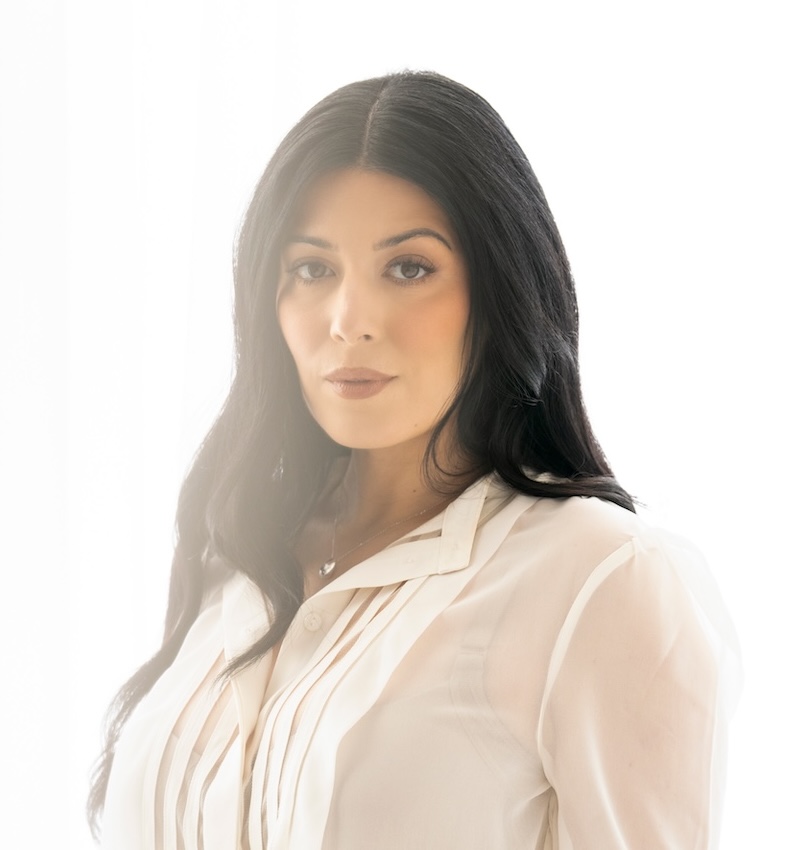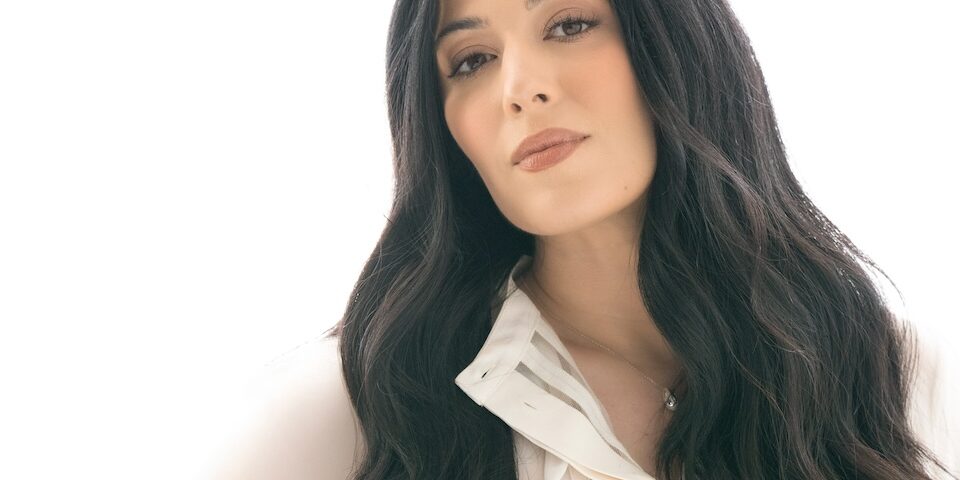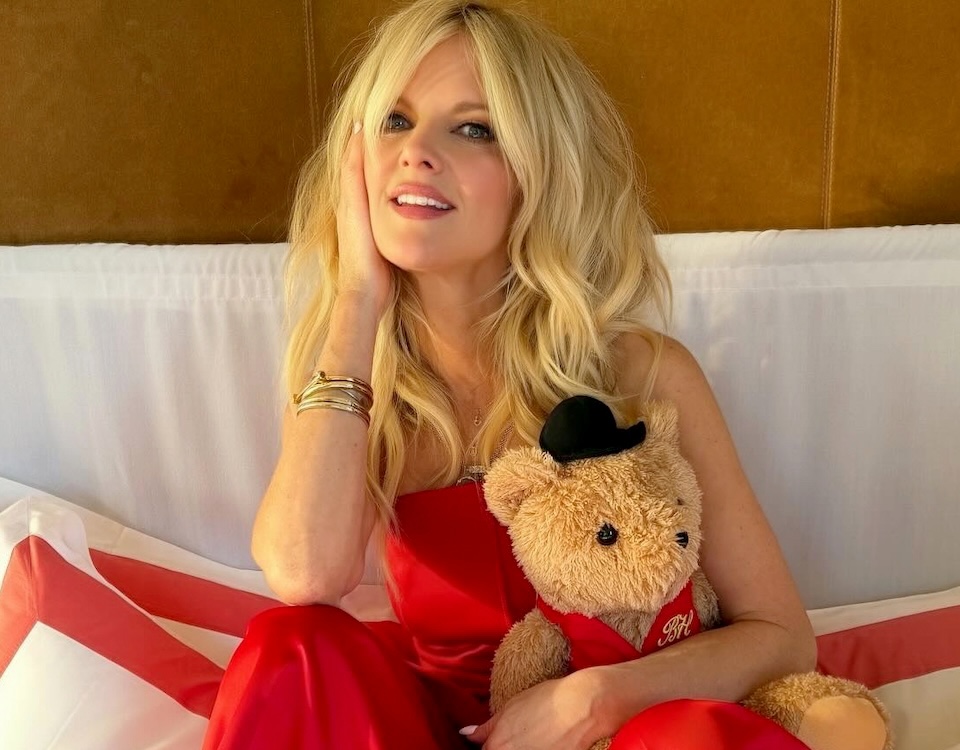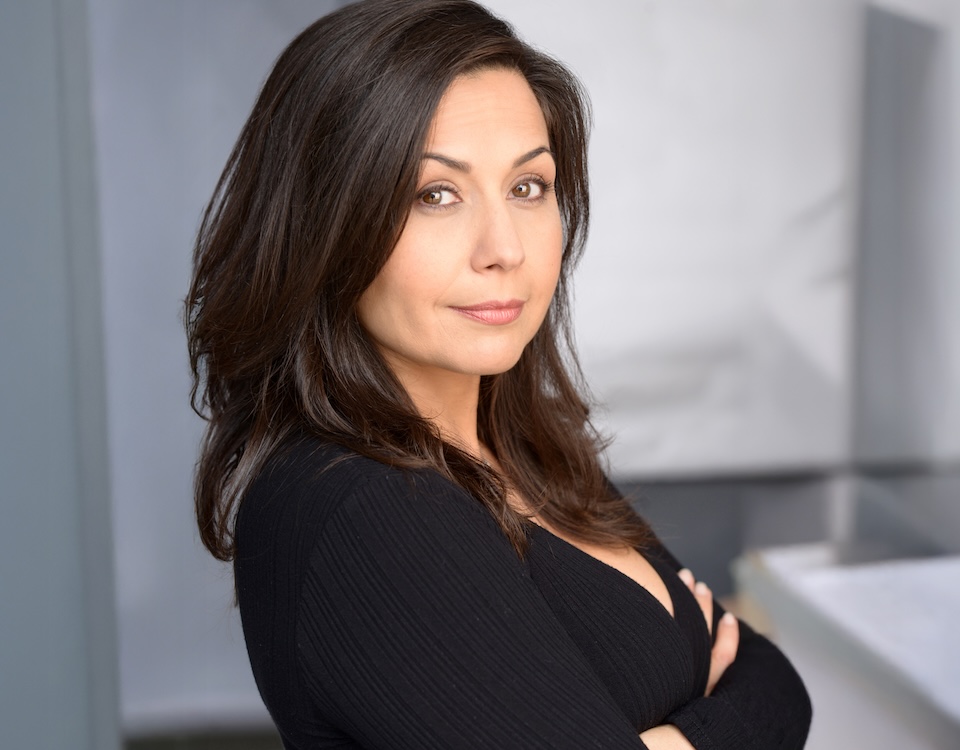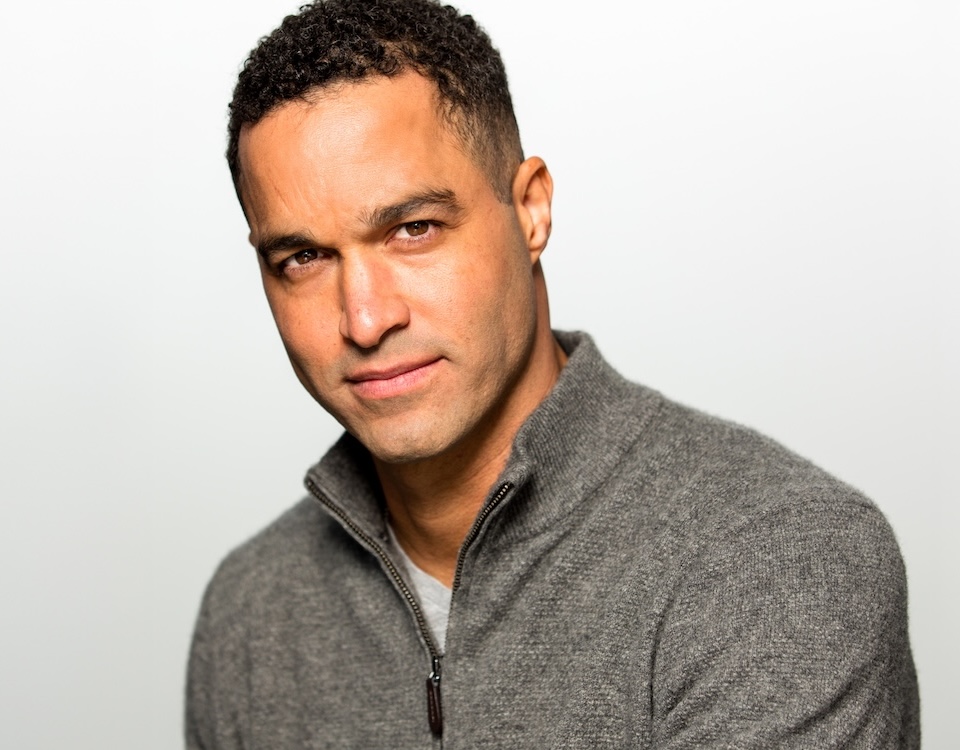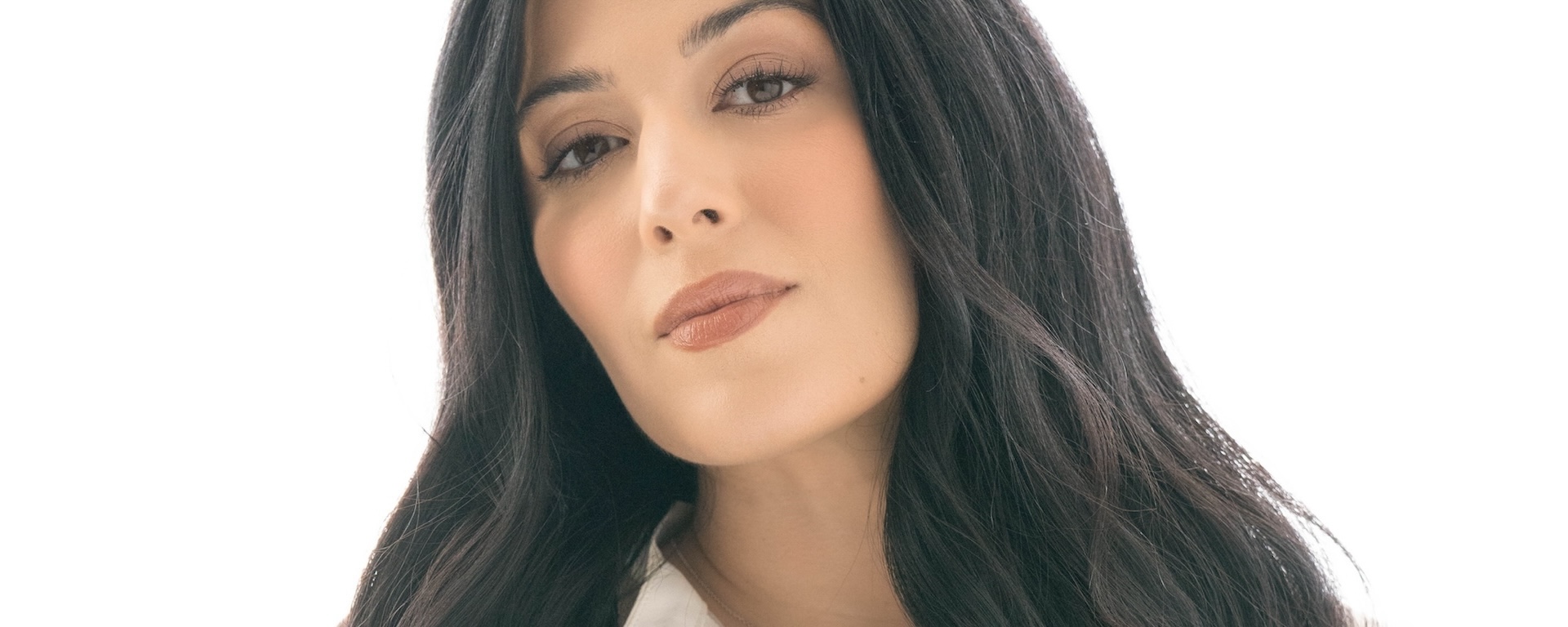
ELIZABETH TABISH: HER VOICE, HER TRUTH

BY EBBY MAGAZINE
Best known as Mary Magdalene in The Chosen, Elizabeth Tabish is an actress, filmmaker, and storyteller redefining womanhood on her own terms.
PHOTOGRAPHY BY ELISABETH CAREN

“THERE IS SUCH A QUIET POWER TO THE SUBCONSCIOUS MIND; THIS FIELD, THIS PLACE, THAT ALLOWS US TO WORK THROUGH STORIES AND SITUATIONS WE TELL ABOUT OURSELVES IN LIMITLESS WAYS. ”
ELIZABETH TABISH, ACTRESS
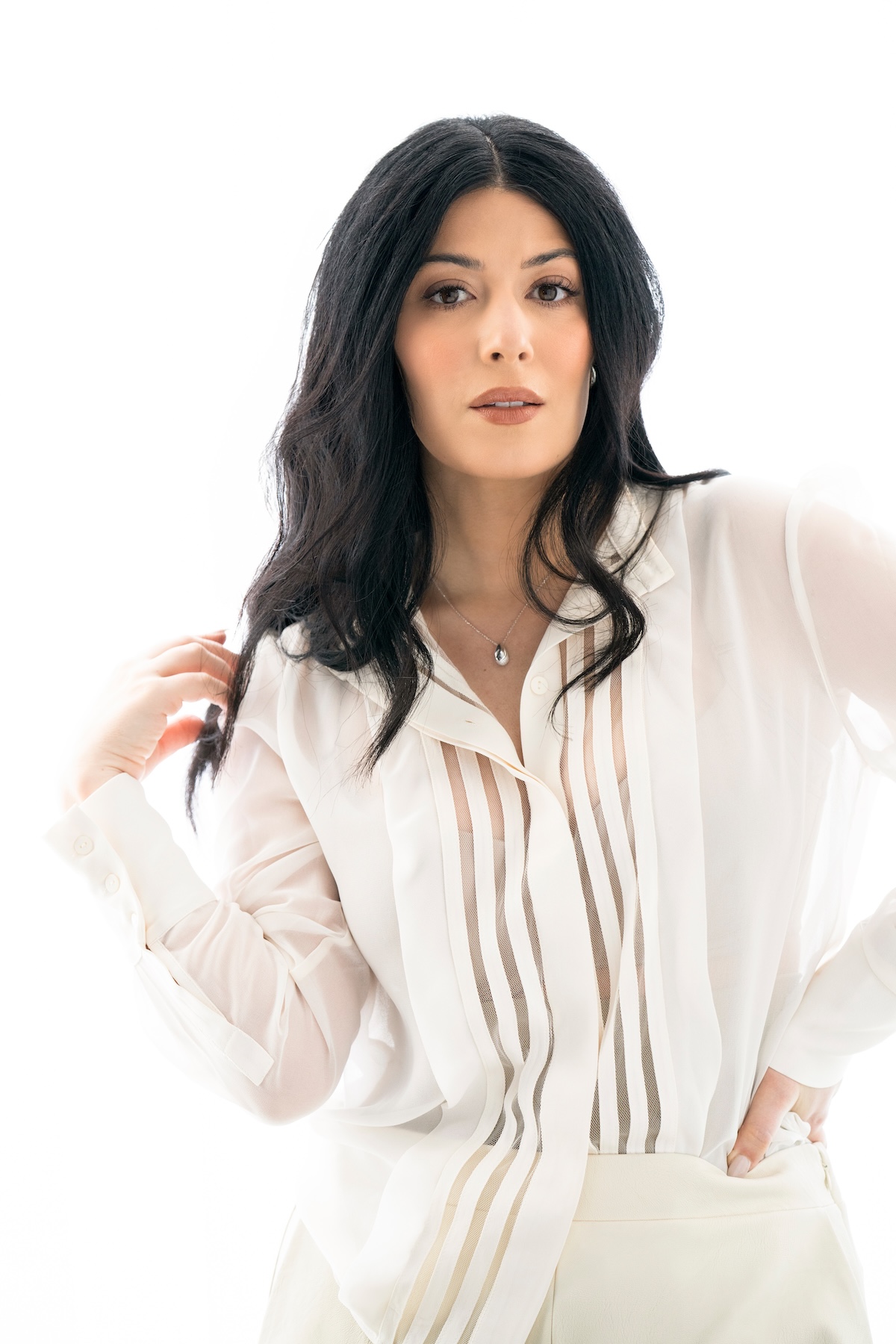
In a world that too often silences women with softness and labels their pain as poetry, Elizabeth Tabish is daring to do both—speak and soar. Best known for her arresting portrayal of Mary Magdalene in The Chosen, the most successful crowd-funded series in history, Tabish has lived many lives: award-winning filmmaker, artistic director, experimental storyteller, and a woman who nearly gave up before a quiet audition changed everything.
But this isn’t a comeback story. It’s a reckoning.
As The Chosen enters its pivotal fifth season, and her own directorial ambitions rise alongside it, Tabish is no longer simply embodying sacred feminine archetypes—she’s reclaiming them. With the clarity of a woman who has walked through fire and the voice of someone no longer content to whisper, she’s asking: What if resurrection isn’t just a miracle, it’s a choice?
Her story is a mirror for so many women who are healing in plain sight—making art out of ache, building something holy from brokenness. Tabish’s life behind the camera is just as intentional as the roles she plays in front of it. Whether writing scripts about myth and memory, producing indie films that defy formula, or voicing hard truths in a patriarchal system, she carries a quiet insistence: that women’s stories deserve to be told in full color and full soul.
We sat down with Elizabeth Tabish for a heart-centered conversation on faith, feminism, emotional well-being, and the beauty of becoming who you truly are.
“THERE IS SUCH A QUIET POWER TO THE SUBCONSCIOUS MIND; THIS FIELD, THIS PLACE, THAT ALLOWS US TO WORK THROUGH STORIES AND SITUATIONS WE TELL ABOUT OURSELVES IN LIMITLESS WAYS.”
How has art helped you reclaim your sense of self in moments when you felt most lost?
I think art helps me reorient and recalibrate to the larger narrative of life. When I feel lost, I remember that every single character in every single story has felt lost at some point in their journey. Feeling lost might even be integral to the narrative. But they continue despite feeling lost, and I’m reminded again and again, there’s more. There’s always more. Just keep going.
There’s a sacred softness in how you speak about women’s stories—as if they’re rituals of remembering. What is one story from your own life that you now see as sacred, even if it didn’t feel like it at the time?
There was a chapter in my life that was full of shadows, nightmares, unexamined pain, and a repetition of mistakes. I put myself in situations that could hurt me, almost in a counter-phobic desire to numb myself to the originating emotional wound. All that to say, there is simply no way I would have been able to understand the character of Mary Magdalene as written in The Chosen when I got the audition all those years ago. It would have been a wild guess as to how to portray her depression, addiction, hauntings, fear, PTSD, and even her struggle with the darkness. Playing Mary has been an incredible experience; the character and the historical figure have taught me so much about transformation, courage, truth, and real, actual faith. My own painful experiences have been used to connect me to the most meaningful role of my career. Is it possible that in my lowest moments, in the darkest places—all of it is somehow sacred?
So much of your work centers on transformation—of pain into power, silence into voice. What part of your own story are you still in the process of transforming?
From passive observer to active participant in life. My natural tendency is to hold back, receive, analyze, and process. But I find myself shifting into a different mode these days—at some point, it’s time to move toward action, creation, and expression.
You’ve played Mary Magdalene, a woman often misunderstood. Has portraying her changed how you see yourself as a woman in a world that still struggles to understand feminine complexity?
Not to be an absolute contrarian because I appreciate this question so much, but—is she misunderstood? Every woman I know seems to understand her perfectly well. It’s possible that she’s just been misunderstood by men. For centuries. They were the ones writing about her, discussing her, mixing her up with various other women of the Bible, accusing her of prostitution, reneging on that assumption, and finally, as a happy conclusion to a schizophrenic judgment of her character, they’ve given her a feast day to celebrate her. If women’s writings were ever included in ancient texts, we’d probably have less confusion about who she is. But we don’t have those readily available or officially recognized. Bringing this concept to today’s world, which still struggles with feminine complexity, my answer remains the same. I don’t think the world struggles to understand feminine complexity at all; I just think that men do.
You once said, “I have a voice too.” What was the moment in your life when you first realized that? And what has speaking up taught you about living your best life?
When I was living in Austin as a struggling actress, there came a time when I was just utterly disheartened by the types of roles I was auditioning for. One-dimensional women, described by what they were wearing, their only job was to provide sex appeal or be the brunt of a bad joke. Always written by men. Always directed by men. I realized no one is going to write an interesting character for me or an honest story about women’s experiences for me. So my friends and I started producing our own short films, exploring female archetypes and telling our side of things. These films explored the complex and challenging experiences of being a woman — listening to your intuition, fighting for your place in the world, protecting your sisters, confronting generational trauma, battling misogynistic predators, etc. These stories were empowering to create and, more importantly, they were eye-opening to share. Screening after screening, from festival to festival, the response from female viewers was incredible. It was the first time I realized how many women relate so deeply to each other’s experiences, and how important it is to have female voices representing ourselves in the film industry.
What does living a beautiful life look like to you now—creatively, spiritually, emotionally? Has that vision changed from what it once was?
Creatively fearless, emotionally joyful, spiritually unapologetic. That vision has changed from a youthful hope for some type of peace within stasis. But life isn’t static; beauty is not static—it’s dynamic and cyclical and changing and morphing and alive and then dead and then alive again, and a truly beautiful life would be to know all of it and still choose it.
You explore surrealism, dreams, and myth in your films. What do you think those inner landscapes reveal about how women move through real life?
I’ve been captivated by the dreamworld since I can remember—how can these stunning narratives play out in our minds every night in such profound ways that they influence our waking life and at times even supersede it? Much of my storytelling has been influenced by dreams I’ve had, by this desire to make visible and tangible this nearly inexpressible, imagined other reality. There is such a quiet power to the subconscious mind; this field, this place, that allows us to work through stories and situations we tell about ourselves in limitless ways. Little movies in our minds, every night. I mean, our dreams are kind of our first cinematic experiences. And the reverse is true— cinema is a shared dream. I’m not sure if it’s relevant only to how women move through waking life, or as much as it’s relevant to how we all move through waking life. Our entire civilization is built upon myth, upon storytelling, upon people who wanted to share their dreams and make them a reality. We are made in the image of God. Creation is a gift we all have been given. We take what is in our minds and we make it come to life.
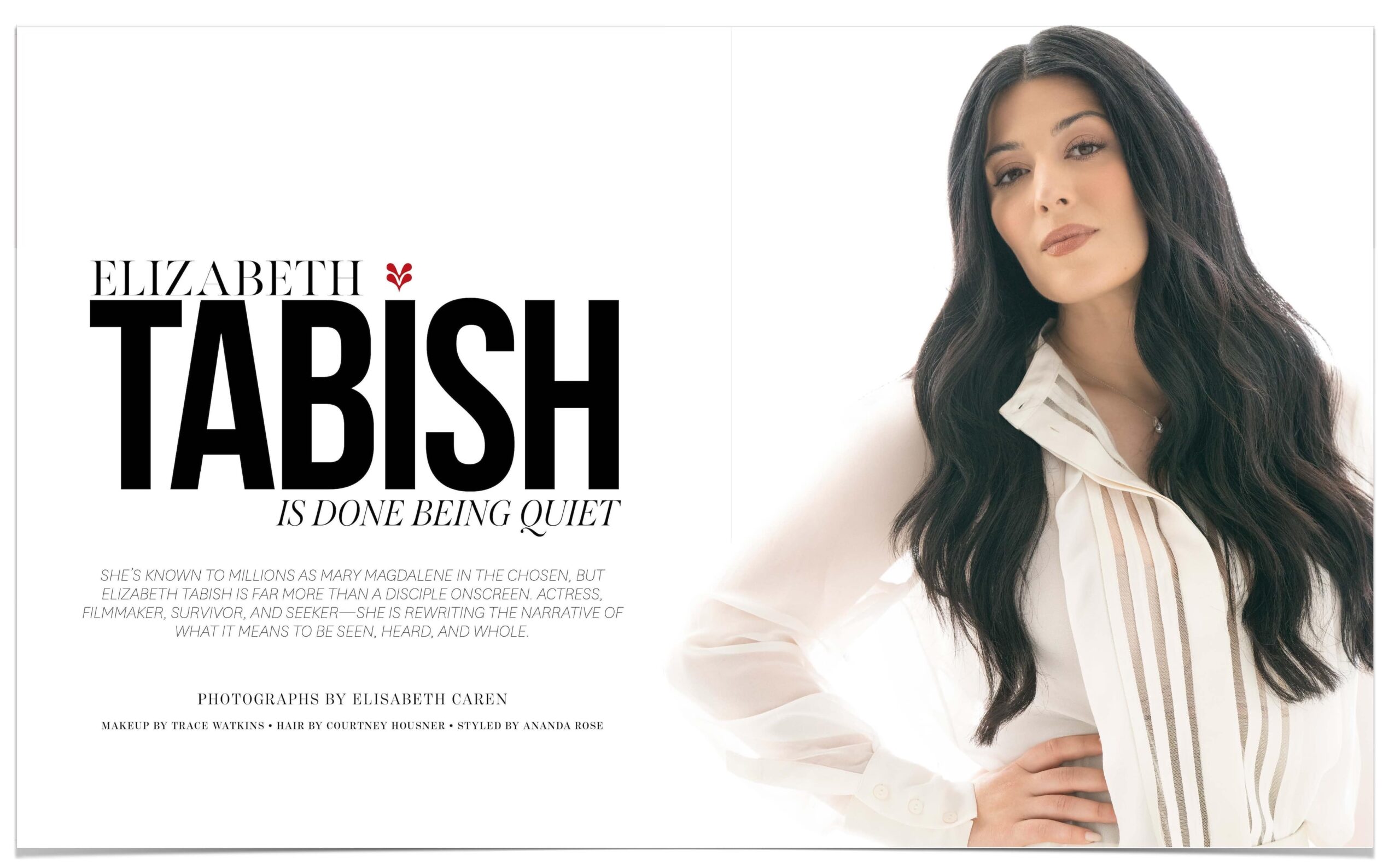
Many women reading this are quietly healing or finding their voice later in life. What would you say to the woman who’s just now learning to listen to herself?
That defining moment of choosing your life and finding your voice seems to come after years and years of undermining and diminishing yourself. Give yourself time to rest before you start creating the life you want. There are so many complex systems at work in this world to gaslight, minimize, and suppress women’s voices, exclude our stories, and reduce our autonomy. We are expected to nurture others, to empathize, to give, to hold space for, and it leaves very little time for us to really flourish. So I would say take time to recover from the impossible expectation to be everything to everyone. I hope you prioritize your well-being, and I hope you consistently refuse all manners of self-betrayal.
If your creative life were a prayer, what would it be asking for right now?
For the courage to tell hard stories.
You’ve called the camera a spiritual presence—a lie detector. What’s one truth about yourself that you used to hide, but now let the camera see?
When I was primarily working as a commercial actress, I was struggling with depression, but when I needed to show up to an audition or to set, my entire job was to portray a mentally healthy, successful, and oftentimes joyful woman. I was none of those things and always felt like I had to really mask my actual feelings of distress. I think playing Mary in The Chosen suddenly allowed me to finally express those more distressing emotions in a really cathartic way and find a new relationship with them that feels more authentic and healthy.
You often appear effortlessly radiant, especially in your role as Mary Magdalene, where the look is so natural. What’s your beauty secret for flawless, glowing skin—on set and off?
That’s nice of you to say. I love Glow Recipe products, prescription retinol in the off-season, and Supergoop SPF when we’re filming. Trying to keep a regular skincare routine really makes a difference, but at the end of the day, it’s still exercise, hydration, and getting as much sleep as possible that make the biggest difference in my skin.
Whether stepping onto a film set or into everyday life, what’s your go-to outfit that makes you feel most like yourself—confident, grounded, and ready to create?
I love a casual black dress with a big slouchy cardigan. And in colder months, I’m here for the trench coat.
